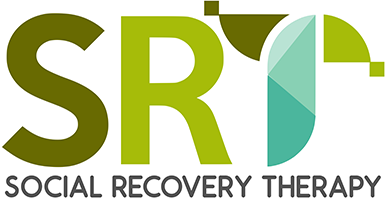Research – Social Recovery Therapy has been extensively researched by a Multidisciplinary Team of clinical, academic, and peer experts. SRT has been the focus of several large-scale multi-centre trials in psychosis and youth mental health:
ISREP
- ISREP supported the effectiveness of SRT with 77 people experiencing social disability following a previous episode of psychosis.
- SRT seemed to lead to increased time spent in structured activity – and this seemed to be through the mechanism of increased positive beliefs about self.
- Follow-up data suggested that SRT had a positive effect on time spent in employment up to two years later.
- SRT was also found to be cost-effective compared to treatment as usual.
SuperEDEN3
- SuperEDEN3 supported the effectiveness of SRT with 154 young people experiencing social disability following 12 to 30 months of Early Intervention in Psychosis service engagement.
PRODIGY
- PRODIGY is a trial of SRT effectiveness and cost-effectiveness with 270 young people with complex emerging mental health problems, including At Risk Mental States for psychosis and complex emerging non-psychotic psychological difficulties.
- A subsample of PRODIGY participants qualitatively reported benefits of engaging in SRT.
We also have an active wider research group engaged in many complimentary projects, including:
SeQuAL
- SeQUAL investigates the school experiences of PRODIGY participants to explore to what extent and how school functioning may predict later mental health and social disability.
TURN-OUT
- TURN-OUT is an observational research study exploring time use and mental health amongst young people experiencing emerging social disability, i.e. young people who are Not in Employment, Education or Training (NEET), and comparison groups.
- TURN-OUT has suggested that young people who are NEET show clinically meaningful levels of social disability and greater depression compared to a student comparison group.
Additional Resources
Research Social Recovery Therapy: Research publications

